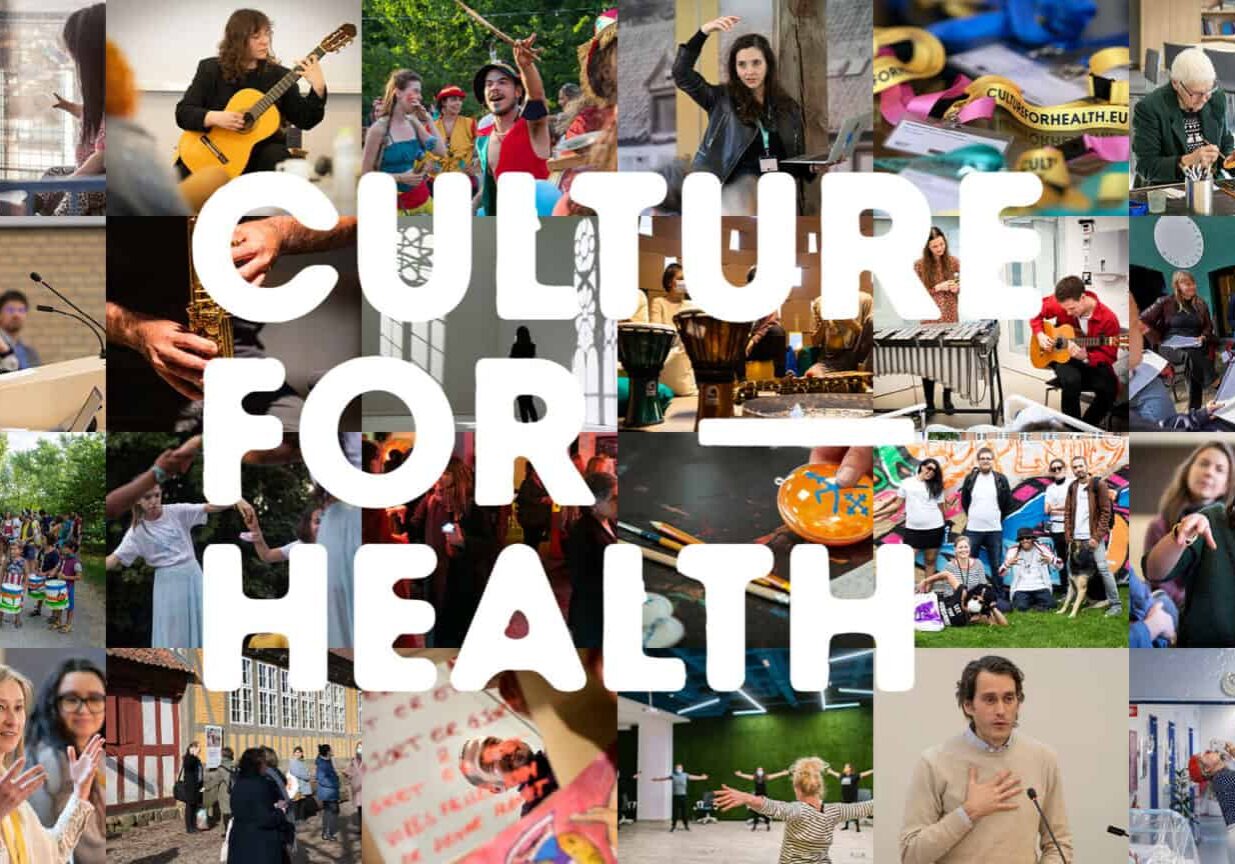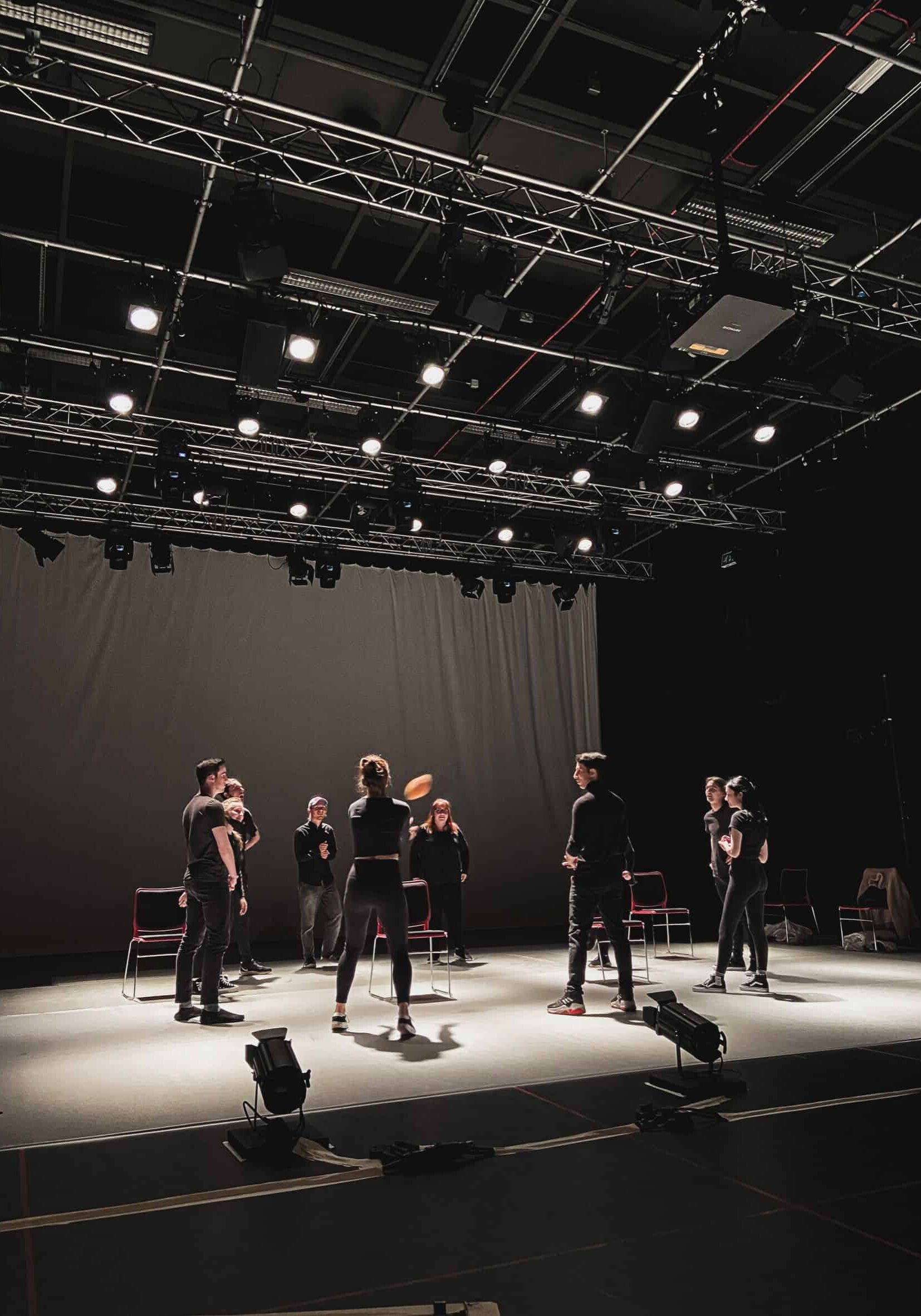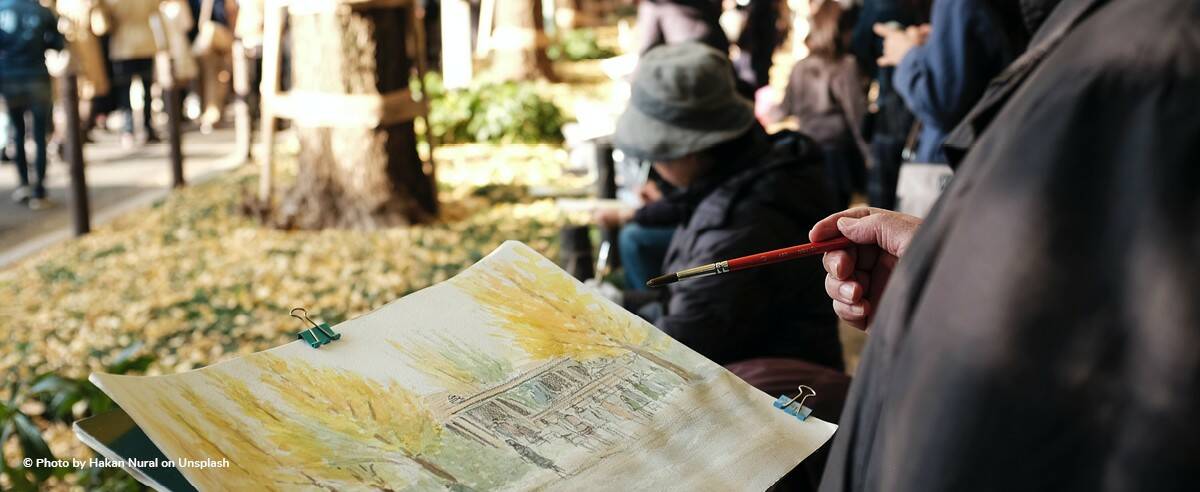EuroHealthNet recently joined the Advisory Board of the CultureForHealth project (2021 – 2023), which is an EU Preparatory Action – Bottom-Up Policy Development for Culture & Wellbeing in the EU, launched and co-funded by the European Union. Its aim is to facilitate the exchange of knowledge, experience and success stories in the EU related to the role of culture in supporting wellbeing and health. But what impact do art and culture activities have upon health and wellbeing?
EuroHealthNet's Lina Papartyte, Project Coordinator in Practice, alongside Senior Policy Coordinator, Dorota Sienkiewicz, and Projects and Operations Director for Culture Action Europe, Kornelia Kiss, discuss the outcomes.
Art and culture strengthen population health

There is mounting evidence on both a European and global scale that demonstrates how arts, creative and cultural activities can support and strengthen a populations health and societal wellbeing. An extensive literature review captured in the WHO Report: What is the evidence of the role of the arts in improving health and wellbeing? (2019), highlighted how different arts activities – such as music, literature, writing, theatre, dance, visual and participatory cultural activities – positively affect psychosocial and behavioural processes. Such activities, for instance, can encourage individuals to take up and maintain healthier lifestyles, avoid risky behaviours, reduce stress and anxiety, and improve health literacy and self-confidence, which in turn can lead to improved motivation and life satisfaction, in addition to fostering social inclusion.
As described in some of our previous Magazine editions, it is clear that arts and culture are a resource for health. This is already being exemplified by some European countries and regions – the North-West of Italy notably – illustrating the benefits towards health promotion and disease prevention.
These processes fit well within innovative and emerging economic models for societal progress too. One such model, the Economy of Wellbeing, emphasises the principle of health and wellbeing-in-all-policies, and aims to reduce environmental, work-related, and economic stressors.
Citizen and community empowerment and engagement in health co-creation

The CultureForHealth project also conducted a scoping review[1]: a research synthesis that aimed to summarise more recent literature on the evidence of culture, wellbeing, and health interventions.
The outcome was clear: culture can support both prevention and treatment strategies. For example, the review found that active dance and drama-based participation can encourage social competences, reduce risk behaviours in youth, foster social engagement and improve mental and physical functioning as well as acting to enhance resilience in older age.
During the COVID-19 pandemic, culture allowed for the emergence of innovative strategies to help individuals cope with challenges, reduce stress and short-term anxiety, and counteract negative effects of social isolation. More broadly, the review found strong evidence that cultural participation supports quality of life in people of all ages.
Not only are culture and the arts effective in sustaining and improving health, but also treatment, care and disease management can benefit from it. For example, psychotherapy centres increasingly use art to rehabilitate their patients. Participatory photography therapy enables people with mental illness to work through problematic issues.
The project strives to continuously collect such initiatives. This is exemplified through the project's recently launched map directory which features over 500 examples of relevant policies, projects and programmes carried out at a local, regional, national, European and international level.


Culture on prescription
In this context, arts on prescription schemes are available in a growing number of European countries. (Have a look at a report of our recent Country Exchange Visit on social prescribing and community-based approaches to health for examples.)
Referrals to community activities, including participatory arts activities[2] are often done via primary care practitioners, or in some countries, medical/social workers. Such referrals are available to those citizens who present with non-medical problems, and who perhaps experience social isolation, loneliness, or require additional psychosocial support. A report released by NHS England and NHS Improvement, claimed that 20-30% of all present doctor visits in England are from individuals who seek such support.
Evaluations have shown the benefits that both art and culture activities can have upon mental health, chronic pain, management of complex and long-term conditions, social support and wellbeing.
Partnerships between sectors
Working together in the health, cultural, academic, social, and urban development sectors, we can create a more holistic understanding of health. Systematic opportunities for collaboration should be created. The presence of enabling factors such as dedicated resources, policies and champions in the community make such initiatives more likely to take root and scale up.
However, working together efficiently takes time and effort. There is an evident need for education and training to support the development and adoption of new ways of working. Having an increased awareness of the connection between health and wellbeing and the benefits of cultural interventions can greatly contribute to health promotion. Empowering health professionals to implement such interventions, not only benefits patients, but simultaneously improves the professional satisfaction of health care workers.

Way forward
The initial research findings from the CultureForHealth project resulted in three strategic principles, delineating the direction that close collaboration between the health and cultural sectors could take to support the health and wellbeing of our societies:
- Increasing awareness of the potential culture can bring in supporting individual and community health and wellbeing, both as a treatment and preventive manner to national, regional, and local health authorities.
- Recognising culture, health and wellbeing as an interdisciplinary field of knowledge and practice.
- Unleashing the potential of culture to promote an Economy of Wellbeing.
If implemented well, the above recommendations could ease the burden on health and social systems and help deliver better and more tailored services to the population. This is relevant in the context of the recovery and resilience re-building (as promoted via the European Semester process), the future crises preparedness (as suggested in the outcomes of the Conference on the Future of Europe, and the European Health Union), as well as contribute to the implementation of the actions of the European Pillar of Social Rights.
1. CultureForHealth scoping review to be published on project website later in 2022 (https://www.cultureforhealth.eu/)
2. Torjesen, I. (2016) Social Prescribing could help alleviate pressure on GPs. BMJ, 352:i1436



